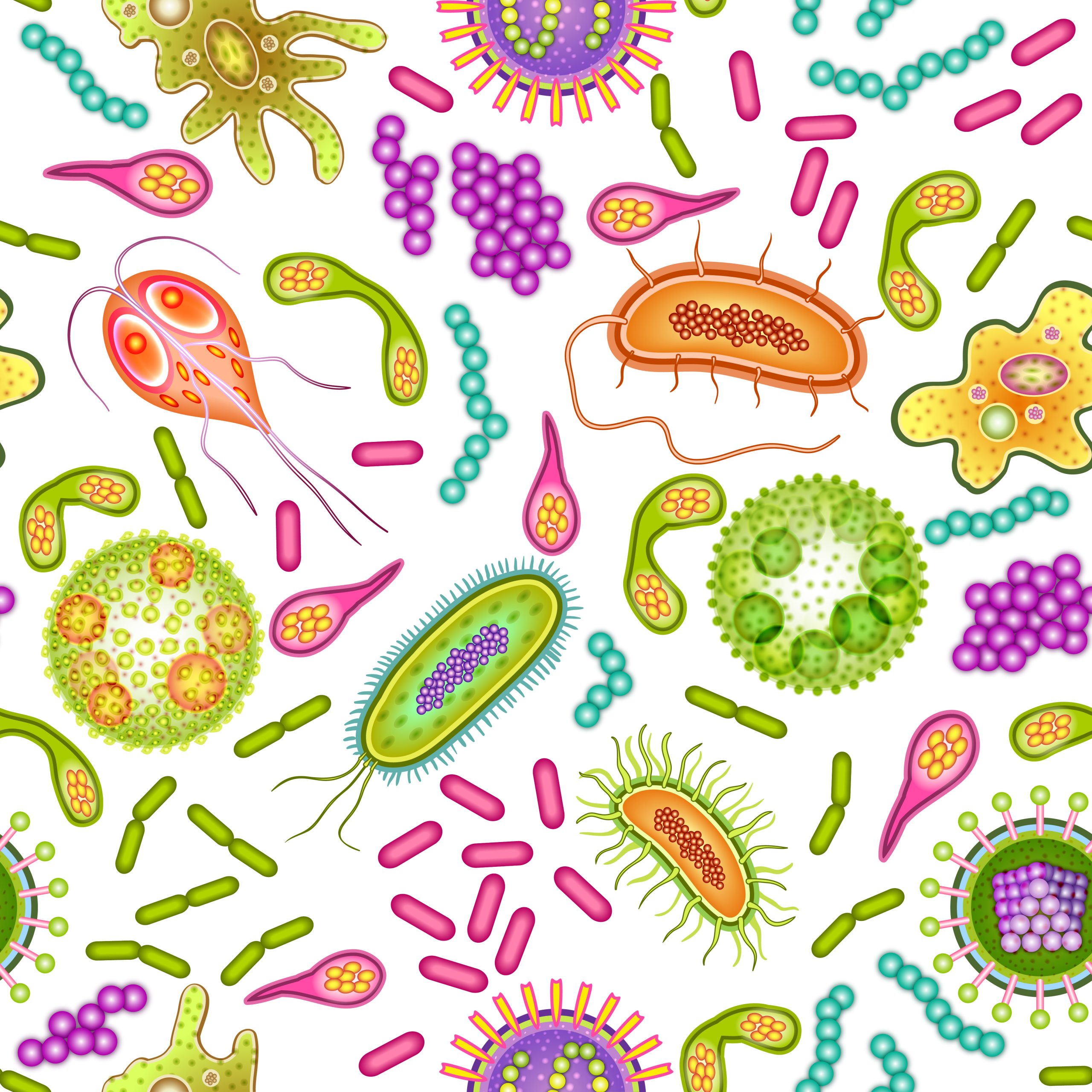

UT Southwestern Medical Center researchers have figured out how the beneficial gut microbiome can leave the colon, find their way to lymph nodes and cancerous tumors in other parts of the body, and increase the efficiency of some immunotherapy medications. The results, which were reported in Science Immunology, explain why antibiotics can lessen the effectiveness of immunotherapies and may pave the way for brand-new cancer treatments.
“Scientists have been stumped as to how bacteria inside your gut can have an impact on cancer in your lungs, breasts, or skin,” said Andrew Y. Koh, M.D., Associate Professor of Pediatrics, Microbiology, and in the Harold C. Simmons Comprehensive Cancer Center at UT Southwestern. “Now we understand that mechanism much better and, in the future, hope to use this knowledge to better fight cancer.”
The composition of the gut microbiome—the bacteria present inside the digestive tract—and the efficacy of cancer therapies that target the immune system, such as pembrolizumab (Keytruda) and ipilimumab, have been linked in prior research, including a study performed by Dr. Koh at UT Southwestern (Yervoy). Yet, investigations pointing to various helpful bacteria have led to differing conclusions concerning the appropriate balance of microorganisms to enhance therapy.
Dr. Koh and colleagues examined how the medications, known as immune checkpoint inhibitors, influenced the transit of gut microorganisms through the body using mice with melanoma tumors. They discovered that immune checkpoint inhibitors, which increase the immune system’s activity against malignancies, also promote digestive system inflammation, which results in the remodeling of lymph nodes in the stomach.
The researchers discovered that because of these modifications, germs can exit the intestines and go to lymph nodes close to the tumor as well as the tumor itself. In this instance, the bacteria cause a group of immune cells to kill tumor cells.
“Immune checkpoint inhibitors work by releasing the brakes on the immune system to target cancer,” said Dr. Koh, who is also Director of the Cellular and ImmunoTherapeutics Program at UTSW and Children’s Health. “What we think is that these microorganisms and the immune cells they’re activating are essentially pressing on the accelerator of the immune system at the same time.”
The findings suggest that a course of antibiotics, which can eliminate most gut microbiome, is detrimental to immune checkpoint inhibitors because the bacteria can no longer play this role of immune accelerant. It also helps explain why researchers have found many types of bacteria in patient microbiomes that seem to be beneficial for treatment.
“As long as a subset of beneficial bacteria can translocate from the gut to the lymph node or tumor, it may not matter exactly which bacteria it is,” said Dr. Koh.
Dr. Koh’s team is now working toward the development of bacterial-based treatments to boost the efficacy of immune checkpoint inhibitors.
more recommended stories
 T-bet and the Genetic Control of Memory B Cell Differentiation
T-bet and the Genetic Control of Memory B Cell DifferentiationIn a major advancement in immunology,.
 Ultra-Processed Foods May Harm Brain Health in Children
Ultra-Processed Foods May Harm Brain Health in ChildrenUltra-Processed Foods Linked to Cognitive and.
 Parkinson’s Disease Care Advances with Weekly Injectable
Parkinson’s Disease Care Advances with Weekly InjectableA new weekly injectable formulation of.
 Brain’s Biological Age Emerges as Key Health Risk Indicator
Brain’s Biological Age Emerges as Key Health Risk IndicatorClinical Significance of Brain Age in.
 Children’s Health in the United States is Declining!
Children’s Health in the United States is Declining!Summary: A comprehensive analysis of U.S..
 Autoimmune Disorders: ADA2 as a Therapeutic Target
Autoimmune Disorders: ADA2 as a Therapeutic TargetAdenosine deaminase 2 (ADA2) has emerged.
 Is Prediabetes Reversible through Exercise?
Is Prediabetes Reversible through Exercise?150 Minutes of Weekly Exercise May.
 New Blood Cancer Model Unveils Drug Resistance
New Blood Cancer Model Unveils Drug ResistanceNew Lab Model Reveals Gene Mutation.
 Healthy Habits Slash Diverticulitis Risk in Half: Clinical Insights
Healthy Habits Slash Diverticulitis Risk in Half: Clinical InsightsHealthy Habits Slash Diverticulitis Risk in.
 Caffeine and SIDS: A New Prevention Theory
Caffeine and SIDS: A New Prevention TheoryFor the first time in decades,.

Leave a Comment